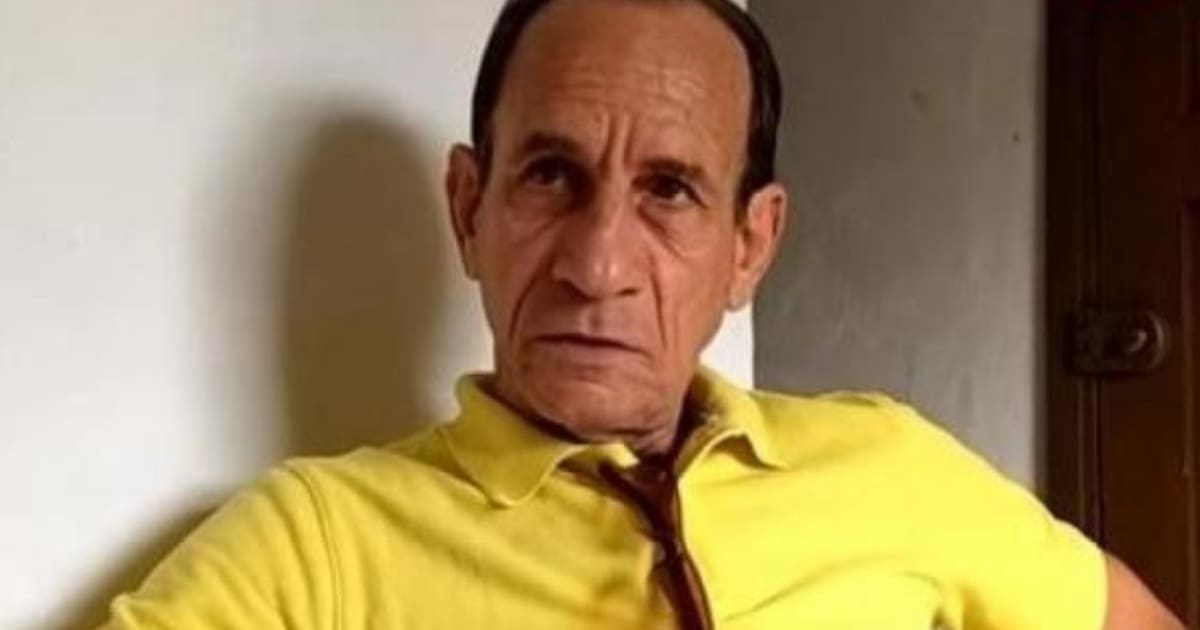Today, Amnesty International named teacher and political activist Pedro Albert Sánchez as a prisoner of conscience, and urged President Miguel Díaz-Canel Bermúdez to release him immediately and unconditionally. In a public statement to mark the third anniversary of the historic demonstrations on July 11 and 12, 2021, Amnesty urged the Cuban authorities to release all individuals who have been unjustly imprisoned simply for exercising their rights to freedom of expression and peaceful assembly, including a number of prisoners of conscience: opposition leader José Daniel Ferrer García; artists Luis Manuel Otero Alcántara and Maykel Osorbo; and Yoruba priests Loreto Hernández García and Donaida Pérez Paseiro.
Pedro Albert Sánchez, 68, is known for his vocal criticism of the Cuban government and for defending freedom of expression and peaceful assembly. Pedro has been arrested multiple times since 2020 for taking part in peaceful protests and expressing dissenting opinions. His peaceful participation in the July 11 march led to charges of “contempt” and “public disorder” and a 5-year prison sentence. Since November 2023, Sánchez, who is suffering from cancer and other illnesses, has been imprisoned in harsh conditions that have further damaged his health. Amnesty International has initiated an urgent action encouraging people all over the world to demand that the President of Cuba release him.
Amnesty’s statement also calls on the Cuban government to end the systematic repression of activists, artists, relatives of political prisoners, intellectuals and journalists. This includes repealing articles of the Criminal Code that criminalize dissent and violate the right to freedom of expression.
Ana Piquer, Amnesty International Americas Director, said: “It is unacceptable that the Cuban authorities continue to use repressive tactics to silence those who dare to speak out in defence of human rights. This constant repression in an attempt to quash any form of dissent must stop once and for all.”
The human rights situation in Cuba continues to deteriorate, with increasing repression and criminalization of dissent. New legal provisions implemented in 2022, including a revised Criminal Code, have been unlawfully used to persecute people demanding or attempting to exercise their human rights freely.
Systematic use of repression tactics by the authorities has also been observed, including criminalization, arbitrary detention, de facto house arrest, and harassment, court summons and administrative sanctions against activists, journalists, and human rights defenders, as well as cutting off Internet access in areas where spontaneous protests occurred.
One of the most flagrant cases is that of opposition leader and prisoner of conscience José Daniel Ferrer García, who has been placed in solitary confinement repeatedly since August 2021 and been held incommunicado for long periods since March 17, 2023. During this time, he has been systematically denied the right to receive visits from his family, which may constitute a form of torture or ill treatment.
Amnesty International denounces the human rights violations suffered by the young woman Mayelín Rodríguez Prado, the activist Wilber Aguilar Bravo, the musician Gorki Águila, the journalist Yuri Valle Roca, and the academics Alina Bárbara López and Jenny Pantoja, examples of a systematic pattern of repression in Cuba, where freedom of expression and peaceful assembly are severely restricted.
Johanna Cilano Pelaez, Amnesty International researcher for the Caribbean region, said: “The number of people unjustly imprisoned and repressed for political reasons shows the urgent need to dismantle the policies and legal framework facilitating repression in Cuba. Many of these people are still behind bars, simply for exercising their right to freedom of expression. Their immediate and unconditional release and respect for their right to dissent are essential to guarantee human rights in the country.”
Over the past three years, organizations such as Justicia 11J, Prisoners Defenders and the Cuban Human Rights Observatory have reported that between 963 and 1113 people have been detained for political reasons. At least 671 are still in prison today for taking part in the protests on July 11, 2021.
The protests in Cuba, driven by a persistent economic crisis, lack of access to basic services, and demands for freedom and rights, have been met with a sophisticated system of repression. People demanding rights and political change have been arbitrarily detained, threatened with imprisonment and convicted on charges such as “public disorder”, “contempt”, and “assault”, among others. Demonstrators have been systematically stigmatized as part of a media strategy by the authorities to discredit, disdain and downplay protests.
Amnesty International calls on Miguel Díaz-Canel Bermúdez’s government to respect the right to peaceful protest, end repression against dissidents, and free people who have been unjustly imprisoned simply for demanding human rights.
Contact: [email protected]

